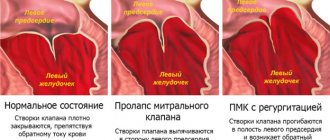Very often, conscripts wonder if they are being recruited into the army under pressure.
In some cases, arterial hypertension is a contraindication to military service. However, there is a possibility that the military medical commission at the military registration and enlistment office may be suspicious of such a diagnosis.
Let’s take a closer look at the pressure under which people are released from the army.
Find out if there are grounds for exemption from the army
Find out if you are fit for the army due to blood pressure or other diseases of the cardiovascular system with the help of our test.
Take the test ~ 1 minute
Can someone with hypertension be recruited for military service?
According to the requirements of the medical commission, hypertension is a non-applicable diagnosis. If a conscript with high blood pressure provides documentation that confirms this diagnosis, or undergoes an examination from the military registration and enlistment office, he will be assigned category “B” or “D”.
However, this only works perfectly in theory. In practice, conscripts who have problems with blood pressure can be recruited for military service. At the same time, calling a person or releasing him from service depends on several factors:
- the conscript must have supporting documentation that he contacted a specialist with such a diagnosis, and did so systematically. If a conscript says he has been diagnosed with high blood pressure, but does not have any doctor’s notes, he can be drafted into the army;
- it is necessary to take into account how stable the high blood pressure indicators are;
- there is written confirmation of the diagnosis from a specialist, which is indicated in the medical record. In fact, this is considered the most important factor, which will be relied upon in the process of passing the medical commission. Please note that the medical record must include a diagnosis of hypertension.
If the medical commission at the military registration and enlistment office confirms the fact of illness, the conscript has the right to be released from the army due to pressure. Point 43 in the Schedule of Diseases stipulates that for the first degree of hypertension, fitness category “B” is set and a military officer is issued.
— Alina Petrova, director of Povestok.Net
The situation is similar with the second stage of the disease - category “B” is assigned when issuing a military ID. Only if a conscript is diagnosed with stage 3 hypertension, he receives a military ID with category “D” and is exempt from conscription. Let us note that the conscription of people with such a diagnosis is prohibited not only in peacetime, but also during war.
It is worth emphasizing that arterial hypertension and essential hypertension are two different diagnoses. And there is a chance to be released from conscription only with a diagnosis of hypertension.
Practice states that if you are diagnosed with hypertension, you can be exempt from conscription only if it acts as a symptom of another disease that is considered non-conscription. A common example is hypertension associated with chronic kidney disease.
Causes of arterial hypertension
The main reasons for the development of hypertension include:
- Diabetes;
- Kidney diseases;
- Stress;
- Smoking, excessive alcohol consumption, obesity;
- Genetic predisposition.
Symptoms of arterial hypertension:
- Headache, usually in the occipital region, is the main symptom;
- Dizziness;
- Flashing “flies” before the eyes, noise in the ears;
- Shortness of breath on exertion.
What are the fitness categories for hypertension?
Category “B”: determined if the conscript has been diagnosed with the first degree of the disease. At the same time, pressure indicators should be kept at a high level - 140-159/90-99 mm Hg. Art. Also, this category is given if the conscript has stage 2 of the disease and high blood pressure on a stable basis - 140-179/90-109 mm Hg. Art.
Category “D”: determined if the conscript has stage 3 hypertension. It is characterized by consistently high levels of 180/110 mmHg. Art.
Sometimes it happens that the draft board makes a decision that does not meet the requirements of the Schedule of Sicknesses. In this case, even conscripts who are diagnosed with stage 2 hypertension, the commission intends to send to serve. This is an illegal decision and must be appealed immediately.
What problems may arise upon release?
As a rule, specialists at the medical commission of the military registration and enlistment office are very doubtful about the diagnosis of hypertension. The fact is that conscripts often try to feign symptoms. And, according to doctors, conscripts often use such a diagnosis as a reason to evade service, because it seems that the symptoms of the disease are very easy to fake.
As practice shows, it can be quite difficult to free yourself from military service due to pressure. This is especially true for conscripts diagnosed with the first degree of the disease. There are a number of nuances, taking into account which a military commission can send a conscript to serve. Let's look at each of them in more detail.
Poor preparation
In order to obtain exemption from military service, it is worth collecting all the necessary documentation from medical specialists. The documents that need to be provided to the commission include final examinations in a hospital setting.
It would not be amiss to attach the results of daily blood pressure monitoring under the supervision of specialists, which were carried out at least six months ago. If a conscript does not have appropriate documentation confirming the diagnosis, there is a risk that he will be sent to the army.
Getting tested for another disease
Sometimes conscripts are sent for examination not for hypertension, but for a similar type of illness. For example, the commission often sends patients to neurological departments to check for VSD or neurocircular asthenia. And given that the conscripts initially had a different diagnosis, VSD and NDC are not confirmed and the person is sent to the army.
Problems during additional examination
Before a conscript is issued a military ID, he must undergo diagnosis confirmation from a military commission. To do this, you need to undergo examination in a hospital setting. This is where a number of problems arise.
The military registration and enlistment office may incorrectly issue the referral itself. It happens that instead of hypertension, hospital specialists indicate “arterial hypertension”, mistakenly believing that there is no difference in these diseases. Such conclusions are not accepted by the military commission, given that a diagnosis of “hypertension” is required to be exempt from conscription.
Patient rights and rules of hospitalization in a 24-hour hospital
A patient is a person who has applied to a medical institution of any organizational and legal form, or to a private practice doctor, to receive diagnostic, therapeutic, and preventive care, regardless of whether he is sick or healthy.
Patient rights are specific rights derived from general civil, political, economic, social and cultural human rights, regulated when receiving medical care and related services or in connection with any medical treatment carried out on citizens.
Issues of protecting the health of citizens and organizing healthcare are directly or indirectly reflected in Articles 2, 19, 20, 21, 37, 38, 39, 40, 42, 58 of the Constitution of the Russian Federation.
The Declaration of Rights and Freedoms of Man and Citizen, adopted by the Supreme Soviet of the RSFSR in 1991, also declared that everyone has the right to qualified medical care in the state healthcare system.
One of the most important articles of the Fundamentals of the legislation of the Russian Federation on the protection of the health of citizens (hereinafter referred to as the Fundamentals) is Article 2, which defines the basic principles of health protection in Russia:
- respect for human and civil rights in the field of health protection and provision of state guarantees related to these rights;
- priority of preventive measures in the field of health protection;
- availability of medical and social assistance;
- social protection of citizens in case of loss of health;
- responsibility of public authorities and management, enterprises, institutions and organizations, regardless of their form of ownership, and officials for ensuring the rights of citizens in the field of health protection.
Article 30 of the Fundamentals contains a list of these rights.
When seeking and receiving medical care, the patient has the right to:
- respectful and humane attitude on the part of medical and service personnel;
- choice of a doctor, including a general practitioner (family doctor) and attending physician, taking into account his consent, as well as the choice of a medical institution in accordance with compulsory and voluntary health insurance contracts;
- examination, treatment and maintenance in conditions that meet sanitary and hygienic requirements;
- holding, at his request, a council and consultations of other specialists;
- relief of pain associated with the disease and (or) medical intervention, using available methods and means;
- maintaining confidentiality of information about the fact of seeking medical help, about the state of health, diagnosis and other information obtained during his examination and treatment;
- informed voluntary consent to medical intervention;
- refusal of medical intervention;
- obtaining information about one’s rights and responsibilities and the state of one’s health, as well as the choice of persons to whom, in the interests of the patient, information about the state of one’s health can be transferred;
- receiving medical and other services within the framework of voluntary health insurance programs;
- compensation for damage in the event of harm to his health during the provision of medical care;
- access to a lawyer or other legal representative to protect his rights;
- admission to a clergyman, and in a hospital institution - to provide conditions for the performance of religious rites, including the provision of a separate room, if this does not violate the internal regulations of the hospital institution.
Respectful and humane treatment on the part of medical and service personnel
Respect and humanity of doctors in relation to patients imply respect for the patient as an individual who, in connection with the disease, undergoes certain difficulties, as well as a feeling of compassion and humanity towards the individual patient, allowing the latter to feel that the reason for seeking medical help is close and understood by the physician and that he will make every effort to help the patient.
Rights and obligations of insured persons (patients)
Insured persons have the right to free medical care provided by medical organizations upon the occurrence of an insured event:
- throughout the Russian Federation to the extent established by the basic compulsory health insurance program;
- on the territory of the constituent entity of the Russian Federation in which the compulsory health insurance policy was issued, to the extent established by the territorial compulsory health insurance program;
- choosing a medical insurance organization by submitting an application in the manner established by the rules of compulsory health insurance;
- replacement of the medical insurance organization in which the citizen was previously insured, once during the calendar year no later than November 1, or more often in case of a change of residence or termination of the agreement on financial support of compulsory health insurance in the manner established by the rules of compulsory health insurance, by submitting applications to the newly selected medical insurance organization;
- selection of a medical organization from medical organizations participating in the implementation of the territorial compulsory health insurance program in accordance with the legislation of the Russian Federation;
- choosing a doctor by submitting an application personally or through your representative addressed to the head of the medical organization in accordance with the legislation of the Russian Federation;
- obtaining from the territorial fund, medical insurance organization and medical organizations reliable information about the types, quality and conditions for the provision of medical care;
- protection of personal data necessary for maintaining personalized records in the field of compulsory health insurance;
- compensation by an insurance medical organization for damage caused in connection with its failure to fulfill or improper fulfillment of its obligations to organize the provision of medical care, in accordance with the legislation of the Russian Federation;
- compensation by a medical organization for damage caused in connection with its failure to fulfill or improper fulfillment of its responsibilities for organizing and providing medical care, in accordance with the legislation of the Russian Federation;
- protection of rights and legitimate interests in the field of compulsory health insurance.
Examination, treatment and maintenance in conditions that meet sanitary and hygienic requirements
This right of the patient is realized by creating conditions in the treatment and prevention institution that are safe from the standpoint of sanitary rules and regulations, i.e. those in which external environmental factors will not pose a threat to human life and health.
Conducting consultations and consultations with other specialists at the patient’s request
In addition to exercising the right to choose a doctor, the patient has the opportunity to initiate a consultation or consultations with other specialists. This right significantly expands a person’s legal opportunities for quality diagnosis and treatment. It should be noted that this right of the patient corresponds to the obligation of the attending physician and officials of the medical institution to organize a council or consultation.
The determination of the scope of medical care, including consultations and consultations, is carried out by the attending physician, and in some cases, in agreement with the head of the department, within the framework of the territorial program of state guarantees for the provision of free medical care to the population of the Samara region.
Relief of pain associated with a disease and (or) medical intervention using accessible methods and means
The established right of the patient provides for the obligation of medical personnel to relieve pain in accessible ways and means. At the same time, attention should be paid to the problems that arise when using strong narcotic analgesic drugs to eliminate pain. It is obvious that, along with a positive effect on the pain center, such drugs can cause addiction to them, which has a very negative impact on the further existence of a person, both during treatment and after his recovery.
Keeping confidential information about the fact of seeking medical help, health status, diagnosis and other information obtained during examination and treatment
Every citizen has the right, in a form accessible to him, to receive available information about the state of his health, including information about the results of the examination, the presence of the disease, its diagnosis and prognosis, treatment methods, associated risks, possible options for medical intervention, their consequences and the results of the treatment provided. .
Information about the state of health of a citizen is provided to him, and in relation to persons under the age of fifteen years and citizens recognized as legally incompetent in accordance with the established procedure, to their legal representatives (close relatives, guardians, trustees, proxies) by the attending physician, head of the department of a health care facility or others specialists directly involved in examination and treatment. Information about the state of health cannot be provided to a citizen against his will. In cases of an unfavorable prognosis for the development of the disease, information must be communicated in a sensitive manner to the citizen and his family members, unless the citizen has prohibited telling them about this and (or) has not appointed a person to whom such information should be conveyed.
A citizen has the right to directly familiarize himself with medical documentation reflecting his state of health and to receive advice on it from other specialists. At the request of a citizen, he is provided with copies of medical documents reflecting the state of his health, if they do not affect the interests of a third party. The information contained in a citizen’s medical documents constitutes a medical secret.
Medical confidentiality is information about the fact of seeking medical help, the patient’s health status, the diagnosis (name) of his disease, means and methods of treatment, the possible prognosis of the disease, as well as other information obtained during the examination and treatment of the patient. Disclosure of information constituting medical confidentiality by persons to whom it became known during training, performance of professional, official and other duties is prohibited. With the consent of a citizen or his legal representative (a representative appointed by him, a guardian appointed by the court), it is permitted to transfer information constituting medical confidentiality to other citizens.
First of all, to officials in the interests of examining and treating the patient, for conducting scientific research, publishing in scientific literature, using this information in the educational process and for other purposes.
Without the permission of the patient (or his representative), the transfer of information about him is considered illegal (i.e., it is considered a disclosure of medical confidentiality).
In cases provided for by the Fundamentals, it is permitted to transmit information constituting medical confidentiality without the consent of the citizen or his legal representative:
- for the purpose of examining and treating a citizen who, due to his condition, is unable to express his will (i.e., who is in an unconscious state that is dangerous to life and health, and in a situation where the patient’s legal representative is unavailable);
- when there is a threat of the spread of infectious diseases, mass poisonings and injuries;
- at the request of the bodies of inquiry and investigation, the court in connection with an investigation or trial. Information containing medical confidentiality is provided only in the presence of a properly executed official request (court (judge), investigator, inquirer);
- in case of providing assistance to a child under 15 years of age, to inform his parents or legal representatives;
- if there are grounds to believe that harm to a citizen’s health was caused as a result of illegal actions (for example, the patient is a victim of a crime). Information about such cases is transmitted by the medical institution and the ambulance service to the internal affairs bodies.
- for the purpose of conducting a military medical examination in the manner established by the regulations on military medical examination, approved by the authorized federal executive body.
Persons to whom information constituting medical confidentiality is transferred in accordance with the procedure established by law, along with medical and pharmaceutical workers, taking into account the damage caused to a citizen, bear disciplinary, administrative or criminal liability for the disclosure of medical confidentiality in accordance with the legislation of the Russian Federation and the legislation of the constituent entities of the Russian Federation.
Informed voluntary consent to medical intervention
A necessary precondition for medical intervention is the informed voluntary consent of the citizen. In cases where a citizen’s condition does not allow him to express his will, and medical intervention is urgent, the issue of its implementation in the interests of the citizen is decided by a council or the attending physician. Consent to medical intervention in relation to persons under the age of fifteen and citizens recognized as incompetent in accordance with the procedure established by law is given by their legal representatives; in the absence of such, the council or the attending physician decides.
Refusal of medical intervention
A citizen or his legal representative has the right to refuse medical intervention or demand its termination, with the exception of cases of providing medical assistance to persons suffering from diseases that pose a danger to others, persons suffering from severe mental disorders, or persons who have committed a socially dangerous act. If a citizen or his legal representative refuses medical intervention, the possible consequences must be explained in a form accessible to him. The refusal of medical intervention, indicating the possible consequences, is recorded in the medical documentation and signed by the citizen or his legal representative, as well as a medical professional. If the parents or other legal representatives of a person under 15 years of age, or the legal representatives of a person declared incompetent, refuse medical care necessary to save the lives of these persons, the hospital institution has the right to go to court to protect the interests of these persons.
Providing medical care (medical examination, hospitalization, observation and isolation) without the consent of citizens or their legal representatives is permitted in relation to persons suffering from diseases that pose a danger to others, suffering from severe mental disorders, or persons who have committed socially dangerous acts.
The decision to conduct a medical examination and observation of citizens without their consent or the consent of their legal representatives is made by a doctor (consilium), and the decision to hospitalize citizens without their consent or the consent of their legal representatives is made by the court.
The stay of citizens in a hospital institution continues until the disappearance of the grounds for which hospitalization was carried out without their consent or by a court decision.
Receiving medical and other services within the framework of voluntary health insurance programs
Health care legislation determines that voluntary health insurance is carried out on the basis of voluntary health insurance programs and provides citizens with additional medical and other services in addition to those established by compulsory health insurance programs.
In voluntary health insurance, an insured event is the insured person's application to a medical institution from among those provided for in the insurance contract in the event of an acute illness, exacerbation of a chronic disease, injury, poisoning and other accidents to receive advisory, preventive or other assistance that requires the provision of medical services within the scope of their list, provided for in the insurance contract. The relationship between the medical insurance organization and the medical institution is determined by the terms of the contract for the provision of medical and preventive care.
Compensation for damage to the patient in the event of harm to his health during the provision of medical care
In case of violation of the rights of citizens in the field of health protection due to the dishonest performance by medical and pharmaceutical workers of their professional duties, resulting in harm to the health of citizens or their death, the perpetrators are obliged to compensate the victims for damage in the amount and manner established by the legislation of the Russian Federation. Compensation for damage does not exempt medical and pharmaceutical workers from bringing them to disciplinary, administrative or criminal liability in accordance with the legislation of the Russian Federation and the legislation of the constituent entities of the Russian Federation.
Standard for providing 24-hour inpatient medical care.
The result of this public service to the patient is the provision of round-the-clock specialized inpatient care by the medical institution, or a refusal to provide it.
Emergency hospitalization to a 24-hour hospital is carried out immediately if there are medical indications.
Hospitalization in a 24-hour hospital is free of charge.
For planned hospitalization, the patient must provide the following documents:
- identification document (passport, for children - birth certificate);
- compulsory health insurance policy;
- insurance certificate of compulsory pension insurance;
- referral from a medical institution at the place of residence;
- results of the medical examination.
For emergency hospitalization, the patient must provide the following documents:
- identification document (passport, for children - birth certificate) - if available;
- compulsory health insurance policy – if available;
- insurance certificate of compulsory pension insurance - if available.
The absence of these documents is not a basis for refusal to provide emergency hospitalization.
It is prohibited to require the patient to:
- provision of documents and information or implementation of actions, the provision or implementation of which is not provided for by regulatory legal acts regulating relations arising in connection with hospitalization;
- provision of documents and information that, in accordance with the regulatory legal acts of the Russian Federation and the Tambov region and municipal legal acts, are at the disposal of state bodies providing public services, local governments, organizations involved in the provision of state and municipal services, other government bodies, etc. d.
Hospitalization to a 24-hour hospital may be routinely refused in the following cases:
- provision by the patient of documents that are no longer valid;
- lack of medical indications for hospitalization.
In case of refusal, the documents are returned to the patient and a written refusal is issued with justification for the reason, signed by the doctor who examined the patient.
Hospitalization to a 24-hour hospital on an emergency basis may be refused if the patient has no medical indications.
Planned hospitalization in Togbuz "GB named after. S.S. Bryukhonenko, Michurinsk" is carried out from 8-30 to 14-00.
There are no planned hospitalizations on weekends.
Print Email
Problems during additional examination
Before receiving a military ID, the conscript must undergo an additional examination from the military registration and enlistment office and confirm the diagnosis in an inpatient setting. At this stage, conscripts face three problems.
The conscript may not confirm his diagnosis. The examination process requires the passage of a number of specialists, including doctors in the field of urology, neurology, cardiology, ophthalmology, and endocrinology.
During the test, these doctors determine whether high blood pressure may be associated with other diagnoses. If, upon completion of the examination, it is possible to find the cause of the elevated blood pressure, doctors can make an appropriate diagnosis, for example, VSD or NCD. And they are not non-diseases.
As we mentioned above, specialists can diagnose hypertension. As a rule, such a problem is faced by those conscripts who have not previously gone to the doctor with complaints of high blood pressure.
Diagnosis of the disease
The initial detection of hypertension or confirmation of the diagnosis by a medical board requires the following studies:
- Monitoring and dynamic measurement of blood pressure over several days.
- Blood tests for cholesterol, potassium, sugar levels.
- ECG.
- Tests for kidney parameters.
- Ophthalmoscopy.
- An abdominal ultrasound is required to determine the extent of organ damage.
Read more about what tests are taken at the military registration and enlistment office on our website.
Also, a person must undergo an examination and consultation with a therapist, cardiologist and neurologist.
Recommendations for parents of conscripts
Before the conscript undergoes a medical examination at the military registration and enlistment office, take enough time to prepare for it. Get examined by specialists, collect all the necessary documentation from doctors: cardiologist, neurologist, endocrinologist.
If this stage is ignored, the conscript may be drafted into service. Since young people often do not understand how to behave in this situation, parents are recommended to go through all conscription procedures together with the conscript.
If you yourself cannot figure out how to provide help to your son, you should contact our company. Our specialists will promptly help you with collecting the required documents for the diagnosis and help you prepare for the medical commission. We also provide legal support at the military registration and enlistment office.
— Ksenia Radugina, Subpoena.No
How to apply for a credit holiday and why does the bank refuse?
To apply for a credit holiday, contact your lender. Take with you the contract, passport and summons to the military registration and enlistment office. Call the bank manager in advance to find out an additional list of documents that will be required to apply for a credit holiday. The lender reviews the application within a week and makes a final decision. And military service is one of the reasons why loan holidays are provided.
This means that the borrower will not repay the debt with interest during the year, but will continue to fulfill the obligations after he returns from the army. But lenders do not always make concessions and refuse some borrowers for the following reasons:
- the borrower voluntarily decided to leave work and wrote a statement of his own free will, it turns out that after returning from service he will look for work;
- the borrower was in arrears with payments and was late transferring money.
And banks such as Sberbank and VTB refuse credit holidays even because of one late payment.
Benefits of credit holidays
- The borrower is legally temporarily exempt from paying the loan debt.
- Credit history is preserved.
- There is no need to pay penalties and fines.
- The financial burden is reduced.
Disadvantages of credit holidays
- The interest rate increases after the borrower returns from the army.
- The bank has the right to provide only partial credit holidays and force you to pay interest, but not the principal debt.
- A commission is paid for applying for a credit holiday, which is an additional expense.











